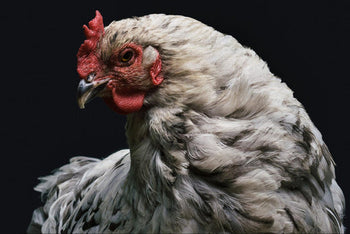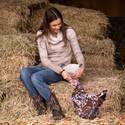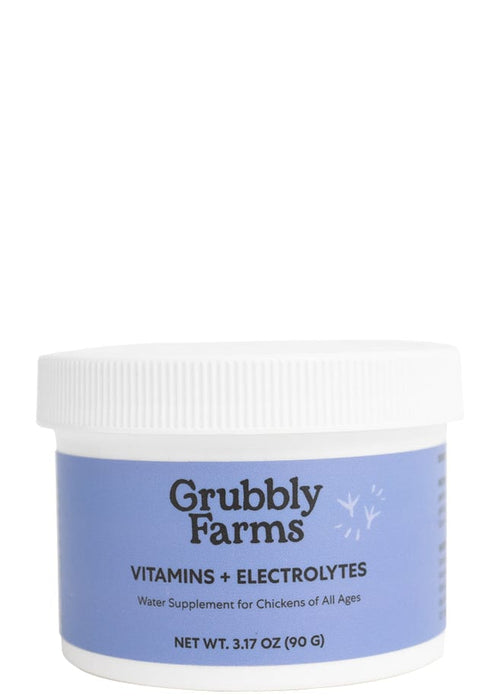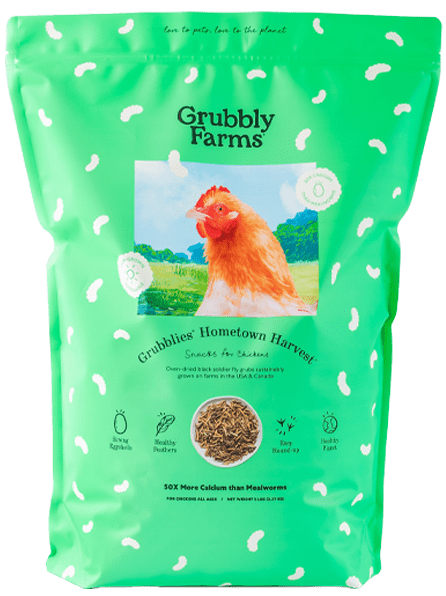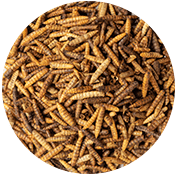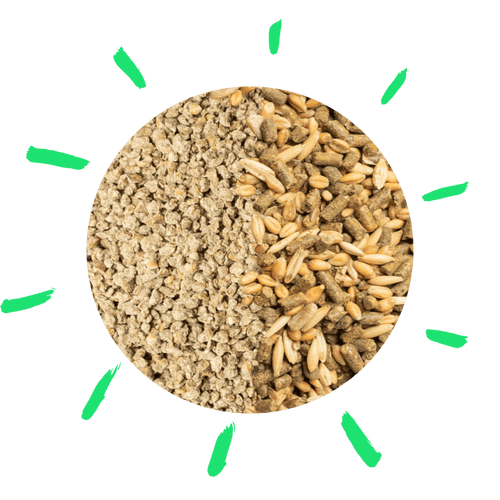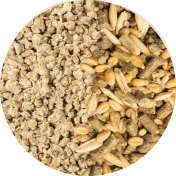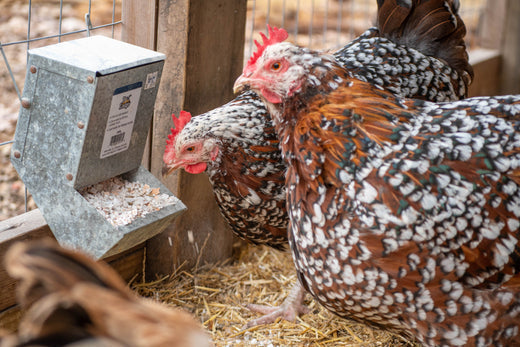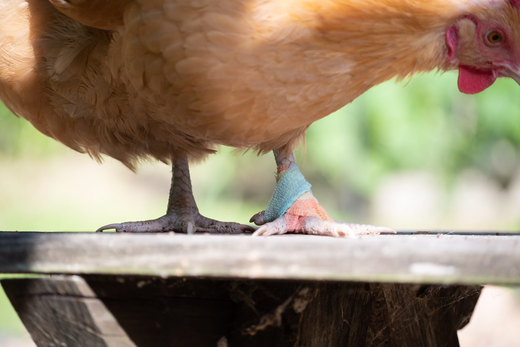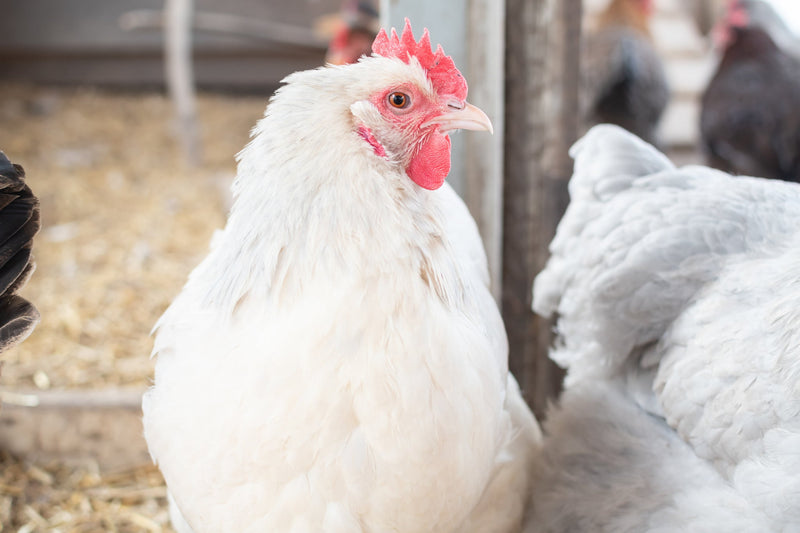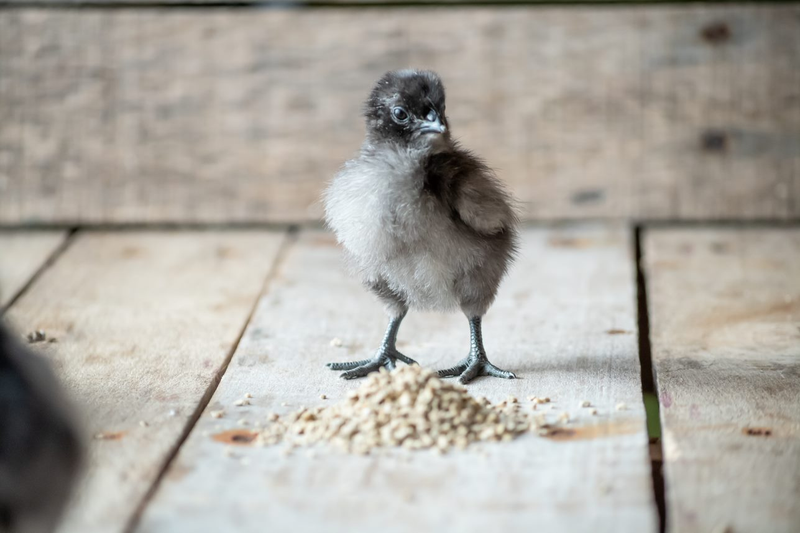Wry neck in chickens can be a startling and alarming condition–in fact, it may be one of the more frightening sights a chicken owner can come across. This is to say that if you were going about your daily flock chores and noticed one of your chickens’ heads lolling about and panicked, you’re not alone. Know that your chicken’s condition is likely treatable and more frightening in appearance than anything else. Very few chickens do not recover from wry neck, given proper care.
If one of your flock members is struggling with wry neck, we’re here to help. Here are some causes, treatments, and prevention of this complex condition.
What is Wry Neck in Chickens?
Wry neck is not a disease or ailment, rather it is a symptom of a disease, injury, or deficiency. Most often, wry neck is a sign of head injury, nutritional deficiency, neurological disorder, or a range of other diseases.
Wry neck can become fatal if the chicken becomes malnourished or the wry neck is caused by a fatal disease.
What Causes Wry Neck in Chickens?
Wry neck can take on several different forms and is caused when a chicken’s neck muscles spasm and pull the head and neck into unnatural positions. The technical term for wry neck is “torticollis,” but it can also be referred to as “crookneck” or “stargazing.” Although, stargazing is a specific form of wry neck that most commonly affects young chicks.
Wry neck can cause a chicken to have difficulty keeping its balance and maneuvering around its environment. It can also inhibit a chicken from eating or drinking properly.
Can Chicks Have Wry Neck?

Yes. Wry neck is a condition that can affect young chicks, adult chickens, and senior members of your flock.
Wry Neck Caused by a Head or Eye Injury
Most often seen in: older chickens
In older chickens, wry neck can be a symptom of a head injury. Head injuries, like getting hit or pecked hard in the head, can cause a chicken to hold its head at an odd angle.
Eye injuries can also cause a chicken to hold its head at a funny angle if it is trying to see better. However, head injuries are more commonly associated with wry neck since it typically leads to neurological problems.
Head Injuries in Crested Chicken Breeds

Chicken breeds that are crested (have a crown of feathers on top of their head) can be more prone to serious injury if they are hit or pecked hard in the head. And, unfortunately, their crests can be a tempting target for feather pecking.
Crested chicken breeds have less bony skulls, and sometimes the skull bone won’t fully enclose the brain due to poor breeding or an injury when the chicken is young. When the skull bone is not fully closed, injuries to the head can cause serious swelling and pressure within the skull which can lead to neurological disorders causing wry neck.
Wry Neck Due to Vitamin Deficiency
Most commonly seen in: younger chicks & sometimes in older chickens
Another cause of wry neck can be due to a vitamin deficiency. While wry neck due to a vitamin deficiency is more common in young chicks, it can also be a cause of wry neck in older chickens as well.
What Vitamin Deficiencies is Wry Neck a Sign of?
Wry neck can be a symptom of a Vitamin B1 (thiamine) deficiency.
Chicks can be more prone to a Vitamin B1 deficiency if they are fed medicated chick feed for too long. The coccidiostat Amprolium in medicated chick feed can inhibit the absorption and utilization of Vitamin B1.
Chicks can also be more prone to dietary deficiencies if their parents’ diet was deficient in vitamins as well.
Other Underlying Diseases That Can Cause Wry Neck
Wry neck can also be a symptom of a more serious disease. There are diseases that affect both young chicks and adult chickens which can cause wry neck to appear. The most common diseases that may be indicated by the symptom of wry neck are fowl cholera and Marek’s disease.
Some diseases that can cause wry neck in adult chickens, include:
- Fowl Cholera (bacterial)
- Marek’s disease (virus)
- Aspergillosis (fungal)
- Botulism (bacterial)
- Toxoplasmosis (protozoan)
- Avian Influenza (virus)
- Ergotism (fungal)
- Newcastle disease (virus)
Some diseases than can cause wry neck in young chicks, include:
- Marek’s disease vaccine
- Arizonosis (bacterial)
- Encephalomalacia (nutritional)
- Listeriosis (bacterial)
- Congenital loco and stargazing
Wry Neck Caused by Toxins
Wry neck is most commonly caused by nutritional deficiencies or is a symptom of a disease. However, it can also be a symptom of a neurological disorder which can be caused by toxins in a chicken’s environment or diet.
What Toxins Cause Wry Neck?
The most common toxins to avoid for chickens include toxic plants, pesticides, and bacteria in decaying vegetable and animal matter.
Keep your flock’s yard and enclosure free of toxic plants and avoid using pesticides, fertilizers, or insecticides around the chicken coop or in the yard if your flock free-ranges.
Paint and heavy metals can also be toxic to chickens. Botulism can be caused by harmful bacteria growing in decaying vegetable and animal matter.
What Are the Symptoms of Wry Neck in Chickens

A healthy chicken will hold its head in an alert, upright position when it is going about its daily activities. Any other position of the head or neck should be a cause for concern. When a chicken is holding its neck and head at odd, abnormal angles then you know your chicken likely has wry neck.
Often, wry neck is considered one of those ailments that people describe as, “you’ll know when you see it.” However, knowing the most common forms can help you identify this problem with more confidence.
Forms of Wry Neck
Forms of wry neck can include the following unnatural positions:
- Tucking head between legs
- Twisting neck all the way around with the head held upside down
- Sideways crooking of the head and neck
- Sideways tilting of the head and neck
- Stretching neck and head over back with head tilted upwards (stargazing)
Is Wry Neck Contagious?
Since wry neck is a symptom of a disease, deficiency, or injury it is not contagious to other chickens in the flock. However, in the case of a dietary deficiency, wry neck can be more prevalent in the flock and may affect several chickens at one time.
How to Treat Wry Neck in Chickens

Your approach to treating wry neck should reflect your chicken’s individual diagnosis. You may need assistance from your vet to confirm which issue has caused your chicken’s ailment. Your vet will likely run bloodwork and perform a physical examination of your chicken. Of course, you will want to eliminate the possibility of toxin-caused wry by looking over your coop, run, yeard, and feed for issues listed above.
Treating a Vitamin Deficiency that Caused Wry Neck
Wry neck caused by a nutritional deficiency can be treated by supplementing the chicken’s diet with the proper vitamins and minerals.
Step 1: Quarantine the Afflicted Chicken
You will want to start off by separating the chick or chicken who has wry neck. This can prevent an adult chicken with wry neck from getting stressed and bullied. For young chicks, separating the young chick can prevent it from being trampled by other chicks in the brooder. You will want to try and keep the chick near the brooder and the other chicks since a chick can get stressed out when it is kept alone.
Step 2: Supplementing Vitamin E & Selenium
You will need to give the chicken (or chick) supplemental vitamin E, preferably with selenium, as well. Selenium helps the body absorb and utilize vitamin E. Look for vitamin and mineral supplements that have been specifically formulated for chickens or poultry.
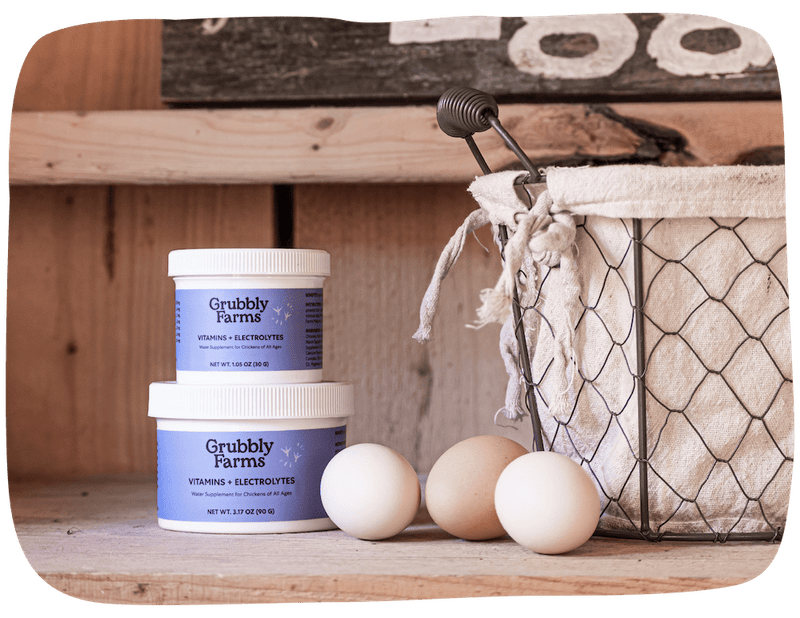
Vitamins + Electrolytes
Protect Your Flock All Year Long
Vitamins + Electrolytes is a powdered water supplement formulated to support health, wellness & hydration throughout all seasons. It helps during heat waves or other times of stress.
Shop NowTo treat wry neck, you will want to administer the vitamin supplement at least 2 to 3 times a day. You can add the supplement to the chicken’s feed or water depending on what form the supplement is in.
Helping a Chicken with Wry Neck Eat & Drink
To help a chicken who has wry neck eat and drink, you will want to gently wrap them in a towel that helps hold the head in a more natural position. If the chicken seems to be in pain when you reposition its head with the towel, you may have to spoon-feed the bird.
You can use a syringe to gently help the bird get some water in its beak to stay hydrated.
Step 3: Be Patient, Consistent, & Monitor Progress
When treating wry neck due to a dietary deficiency, you will need to be patient. Be consistent with administering the vitamin supplement on a daily basis, several times a day. You may see improvement in the condition as quickly as 24 hours or it may take several weeks for the condition to be cured. Even after you see some improvement, don’t stop administering the vitamin supplement for up to 2 weeks after you see improvement.
Wry neck symptoms may get worse before they get better, so don’t get discouraged! You will want to make sure all the symptoms are completely gone before you stop administering the vitamin and mineral supplements as wry neck can return if the treatment is stopped too soon.
Step 4: Discontinue Supplements a Few Weeks After the Chicken Heals
Don’t continue with vitamin and mineral supplements indefinitely. Vitamin and mineral imbalances can occur when supplements are used for too long when they are not needed.
Treating Wry Neck: Injuries & Disease
If the wry neck condition does not seem to be improving with a vitamin supplement, then it may have been caused by a head injury, which is not always curable. However, your vet can help you determine how dire the situation may be. If you decide to treat the injury, here are the steps:
Administer an Anti-Inflammatory and Watch for Improvement
Wry neck due to a head injury can be helped by giving the chicken anti-inflammatory treatments to bring down any swelling in the skull. If the brain was not damaged from the injury, the bird may recover from the head injury and the wry neck may go away.
Treating Wry Neck from Other Diseases
If the wry neck is accompanied by other disease-like symptoms, then you will want to consider if the wry neck is a symptom of a more serious disease. If you are able to diagnose the disease, then you can consider what treatments may help or cure the disease which will cure the wry neck condition as well.
Again, your vet is likely to be your best resource for this. They can prescribe specific medications and more accurately diagnose disease through blood work and other tests.
How to Prevent Wry Neck in Chickens
Preventing wry neck in your backyard flock is the best way to avoid having to deal with this unique and uncomfortable poultry ailment! Here are some ways you can help prevent wry neck from becoming an issue in your flock:
- Proper Diet: Ensure your flock is getting a nutritionally balanced diet that is not stale
- Vitamins for Breeders: For breeding chickens, they should have a diet that is rich in vitamins and minerals
- Use Non-Medicated Feed Properly:- Either opt for non-medicated chick feed or only feed medicated chick feed for the first 2-3 weeks
- Offer Foods Rich in Vitamin E: Sunflower seeds are rich in both Vitamin E and selenium and broccoli and spinach are natural sources of Vitamin E as well
- Prevent Head Injuries: Handle your birds gently, ensure their coop and enclosure is safe, and prevent bullying in your flock
Keeping your flock healthy through proper biosecurity practices, a good diet, and proper cleaning can help prevent diseases that may cause wry neck.
Don’t Let Wry Neck Go Awry in Your Flock

Should a case of wry neck pop up in your flock, remember to remain calm–it’s less scary than it looks, and you can often treat the underlying cause. But do act: Curable wry neck can be fatal if left untreated.
Try to take a proactive, preventative approach. Most cases of wry neck can be prevented in both your young chicks or your adult flock with a nutritious diet! Plus, a nutritious diet can aid in a chicken’s ability to fight off disease and heal more efficiently. And don’t forget that proper coop cleaning and checking for possible toxins can keep your flock healthy and happy!





